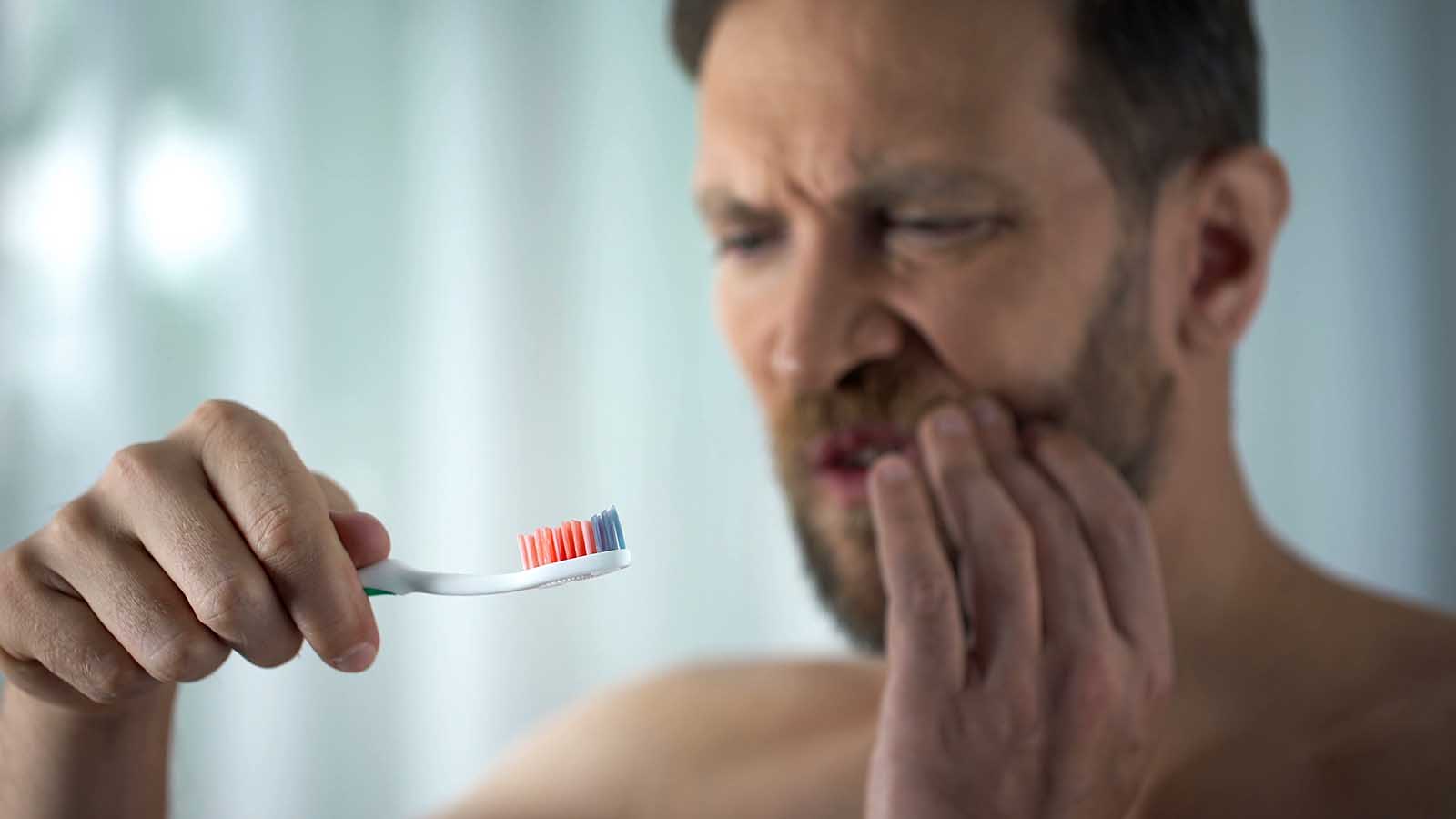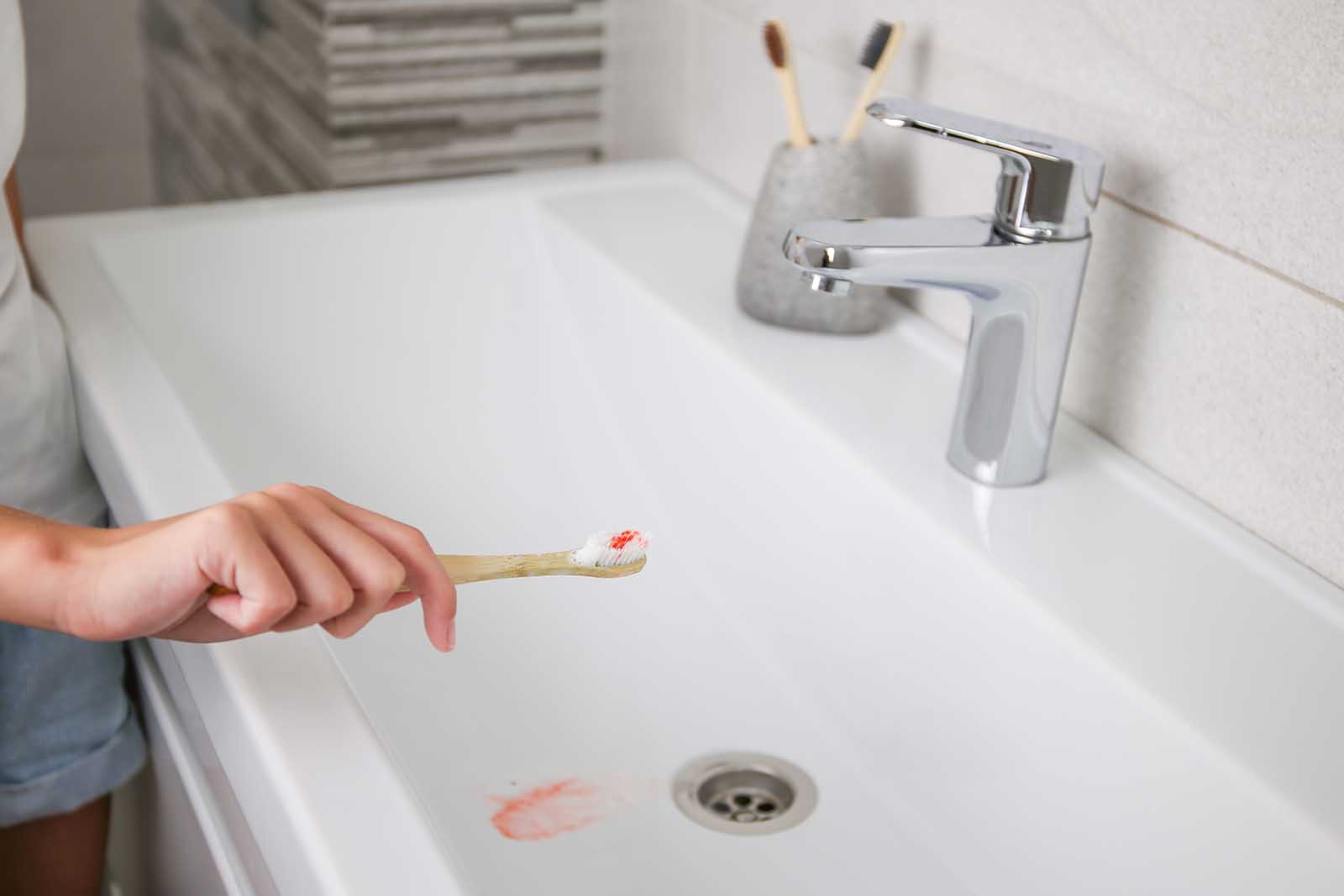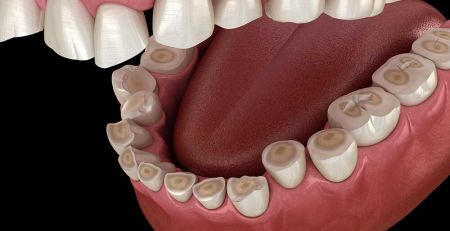Table of Contents
Are you suffering from bleeding gums, or have you noticed blood on your toothbrush?
Bleeding while brushing teeth is a common issue, but it shouldn’t be ignored as it often indicates underlying oral health problems.
Understanding the causes and preventive measures can help maintain good oral health and prevent more severe complications from bleeding gums.
Common Causes of Bleeding Gums
1. Gingivitis
The most common cause of bleeding gums is gingivitis, an inflammation of the gums usually triggered by plaque buildup along the gumline.
Plaque contains bacteria that produce toxins, which can irritate and inflame the gum tissues, leading to bleeding during brushing.
2. Improper Brushing Techniques
Using a hard-bristled toothbrush or applying too much force while brushing can cause your gums to bleed. This type of bleeding often results from damaging the delicate gum tissues.
3. Inadequate Flossing
Irregular or improper flossing can leave plaque to harden into tartar, a calcified material that plaque adheres to and can only be removed by a dental professional.
Tartar buildup at the gumline is a significant irritant that can lead to bleeding gums.
4. Medication
Certain medications, including blood thinners, can increase the likelihood of bleeding gums.
Such medications decrease the blood’s ability to clot, leading to easier bleeding, even from mild irritation of the gums during routine brushing or flossing.
5. Medical Conditions
Conditions such as pregnancy, diabetes, and diseases that affect the immune system, like leukemia and HIV/AIDS, can also increase the risk of gum inflammation and bleeding.
Preventive Measures
To prevent bleeding while brushing your teeth, consider the following tips:
- Use a soft-bristled toothbrush and replace it every three months or sooner if the bristles fray.
- Practice gentle brushing techniques, using small circular motions at a 45-degree angle to the gums.
- Floss daily to remove plaque between teeth and along the gumline that your toothbrush can’t reach.
- Visit your dentist regularly for professional cleanings and check-ups. This is crucial for removing tartar buildup and addressing any signs of gum disease early.
When to See a Professional?
If you notice persistent bleeding despite following good oral hygiene practices, it’s essential to consult a dental professional.
Bleeding gums can be a sign of periodontitis, an advanced form of gum disease that, if not treated promptly, can lead to tooth loss and other health complications.
Conclusion
Bleeding while brushing is not just a minor inconvenience; it’s a sign that something may be wrong with your oral health.
At Amazing Smiles, our team of dental professionals is dedicated to providing comprehensive care for managing and preventing dental and periodontal diseases.
We encourage you to visit your nearest Amazing Smiles clinic for a thorough examination and personalized advice on maintaining optimal oral health.
Regular dental visits and preventive dentistry are your best defences against oral health issues, ensuring a healthy smile that can last a lifetime.
Disclaimer: The content provided in this article is for informational purposes only and is not intended as a substitute for professional medical advice or treatment. Always seek the advice of your dentist or other qualified health provider with any questions regarding a medical condition. Do not ignore professional advice or delay seeking it because of something you have read here. If you have a medical emergency, contact your healthcare provider immediately. Reliance on any information appearing on this website is strictly at your own risk.





